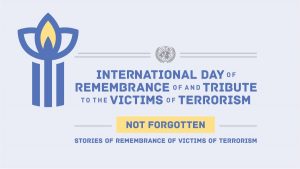This story was first published in Indian Country Today.
As a survivor, child witness and mom of an 8-year-old daughter, the work of missing and murdered Indigenous women is extremely personal to Minnesota Lt. Gov. Peggy Flanagan.
“[I] don’t want her to experience the same things I’ve experienced, as well as every literally Native woman I know has experienced violence. I’m hell-bent on changing the current conditions so that she and [other] Native children will not have to experience that in their lifetime,” Flanagan told Indian Country Today.
On July 1, as part of Minnesota’s COVID-19 Recovery Budget, a Missing and Murdered Indigenous Relatives office was confirmed to be established.
The budget is $1 million biennium and will hire four full-time staff. It will be located within the Department of Public Safety in St. Paul, Minnesota. The name change from MMIW to “Missing and Murdered Indigenous Relatives Office” is to include the two spirit community.
Five other states — Arizona, Indiana, South Dakota, Montana and New Mexico — have offices for MMIW cold cases established under the Operation Lady Justice Task Force, an executive order signed by President Trump in 2019. As part of the Operation Lady Justice initiative, Interior Secretary Deb Haaland announced the Missing and Murdered Unit this year.
Eighty-four percent of Native women have experienced violence in their lifetimes, according to the National Institute of Justice. And on some reservations they are murdered at a rate 10 times higher than the national average.
Flanagan, White Earth Band of Ojibwe, said the office’s city location won’t limit advocates, coalitions, tribal leaders and law enforcement from continuing to work on the issue.
“While the office may be in St. Paul, they will have a significant presence in the state of Minnesota and across tribal communities,” she said.
She added it will take some time to hire staff and hopes it will open by the end of the year.
Mary Kunesh, of Standing Rock Lakota descent and the first Indigenous woman to serve on the Minnesota Senate, championed the 2019 bill to establish the task force.
Kunesh wrote in the Star Tribune, before the budget for the office was passed, “I remain hopeful that the day will come that we will prioritize the safety and well-being of Native people everywhere.”
Flanagan has been a strong supporter of the task force and has been pushing to open the office. And the reaction she’s seen from advocates and survivors has been of relief and hope. And the community and the state of Minnesota are ready to address the issue.
Back in April, she said she hoped the elected state officials would remember their commitment to the task force, which was passed with bipartisanship, and help supply resources.
Although opening up the office wasn’t unanimously supported, Flanagan said that there was still strong support from leaders on both sides of the aisle.
She said the goal of the office is to look at underlying causes of the issue and create policy solutions to the governor’s office and state legislation.
“We think it’s really key and critical so that we have a place that’s dedicated to doing this work,” she said.
And perhaps opening an office committed to MMIW will inspire others to create their own.
“I hope what we’re able to do is to be a model for what is possible throughout the country,” Flanagan said “We know that this issue crosses state lines and crosses international lines so I want us to continue to work on those partnerships.”




